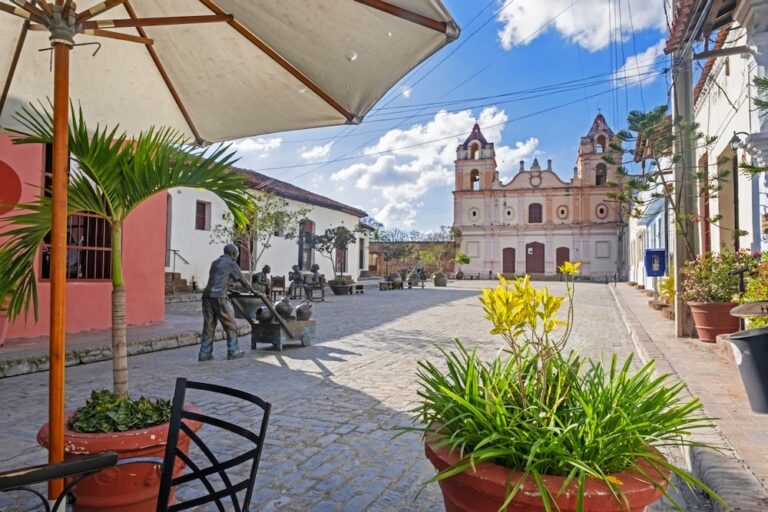(RSF/IFEX) – On 28 August 2002, RSF expressed concern that two independent Cuban journalists, Carlos Brizuela Yera and Léster Téllez Castro, may soon be sentenced to five and six years in prison for subversion. “If the two journalists are convicted, it would bring to three the number of journalists imprisoned in Cuba for this reason. […]
(RSF/IFEX) – On 28 August 2002, RSF expressed concern that two independent Cuban journalists, Carlos Brizuela Yera and Léster Téllez Castro, may soon be sentenced to five and six years in prison for subversion.
“If the two journalists are convicted, it would bring to three the number of journalists imprisoned in Cuba for this reason. Only a few dictatorships in the world still use this offence as a reason for imprisonment,” said RSF Secretary-General Robert Ménard in a letter to Cuban President Fidel Castro. Ménard called for the journalists’ immediate and unconditional release and the dropping of legal action against them.
Ménard noted that Cuba was “the only country in Latin America where journalists are still formally imprisoned.” United Nations Special Rapporteur on Freedom of Expression Abid Hussain said in a January 2000 report that imprisonment for the peaceful expression of an opinion is a serious human rights violation.
RSF also called for the release of independent journalists Carlos Alberto Domínguez, imprisoned since February, and Bernardo Arévalo Padron, who was jailed for six years on 28 November 1997 for insulting President Castro and Vice-President Carlos Lage.
The Public Prosecutor’s Office in the central province of Ciego de Avila has called for a six-year prison term for Téllez Castro, head of the Agencia de Prensa Libre Avileña (APLA), and five years for Brizuela Yera, who works for the Colegio de Periodistas Independientes de Camaguey (CPIC) agency. According to the website www.cubanet.org, eight human rights campaigners arrested and beaten along with the two journalists on 4 March also face prison terms of two to seven years.
All are accused of “insulting” President Castro, “disturbing public order” and “refusing to obey orders”. The date for their trial has thus far not been announced.
The two journalists were arrested on their way to visit Jesús Alvarez Castillo, a correspondent for the Cuba Press agency in Ciego de Avila province, who had been hospitalised after being beaten up the same day by police. Téllez Castro is being held at Canaleta prison in Ciego de Avila. Brizuela Yera is imprisoned at a detention centre in the eastern province of Holguín. Both have smuggled out reports complaining about bad prison conditions.
Domínguez, of the independent news agency Cuba Verdad, was arrested by four state security officials at his home on 23 February. He has reportedly been charged with “disturbing public order” and “refusing to obey orders” (see IFEX alerts of 2 July, 15 May and 18 March 2002).
Requests by Arévalo Padron, founder of the independent news agency Linea Sur Press, for parole have been rejected several times, though he has theoretically had a right to it since October 2000, when he had served half his sentence (see IFEX alerts of 23 August, 15 May and 23 January 2002, 4 July, 4 May and 26 March 2001, 25 July 2000, 22 October and 17 June 1999, 29 April and 16 March 1998).
Only government-controlled media outlets are permitted in Cuba. Because they cannot publish in their own country, about 100 independent journalists rely on organisations of Cubans exiled in the United States to distribute their articles, mostly on Internet websites. In 2001, about 30 journalists were arrested and nearly 100 acts of intimidation against journalists were recorded by RSF. About 50 independent journalists have been forced into exile abroad since 1995. President Castro is included in RSF’s list of 42 international “press freedom predators”.


